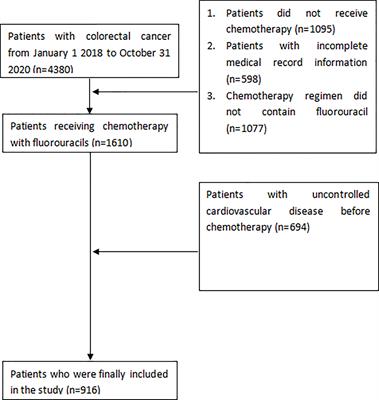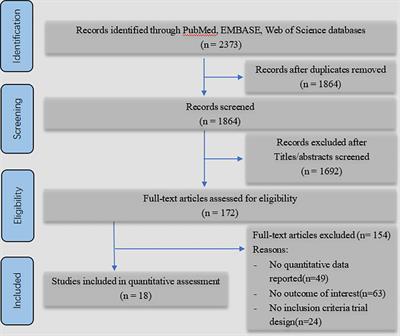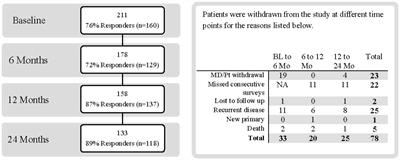ORIGINAL RESEARCH
Published on 01 Mar 2023
Risk factors for fluoropyrimidine-induced cardiotoxicity in colorectal cancer: A retrospective cohort study and establishment of a prediction nomogram for 5-FU induced cardiotoxicity

doi 10.3389/fonc.2023.1017237
- 1,424 views
- 11 citations



